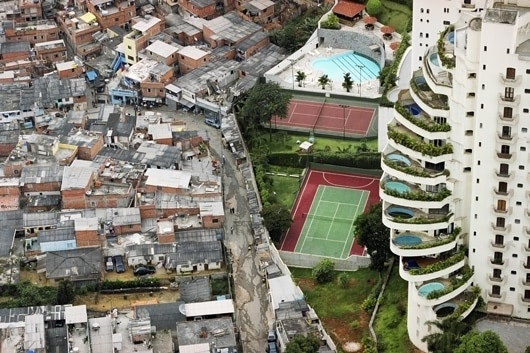Anthropologist Setha Low, one of the first to study the subject, defines gated community as “residential developments surrounded by walls, [and] fences” with a “structured entrance"; or, as estate agents nicely put it, exclusive property that sums- for those who can afford it- the much needed three P’s: privacy, protection and prestige.
Known as "Cerradas" in Mexico, "condomínios fechados" in Brasil or more eloquently as security estates in post-apartheid South Africa, the concept of a community defending itself from outside violence is, in a way, an ancient practice (think of Medieval fortress or, even before, walled Romans settlements). At first very popular in The States, where the first "self-contained suburban utopias,” sprung around 1850, gated communities are since the last decade a cross continental rising trend.
Another Made-In-The-West by product of globalization? Not quite; or, at least, to each culture its own cultural reason to "gate out". In China and the Philippines, where minorities are less prominent, owning property in such enclaves seems to be a symbol for status and exclusivity rather than fear for the other and obsession with security.
But communal feelings reportedly are the only thing that got missing between the manicured golf parks and razor wires: infact fear is still not easy to wipe away as often "incidents" perturb the uncanny harmony: from kids crushed by electronic gates while playing, to the infamous cases of Trayvon Martin or Pistorius; when exclusivity becomes exclusion, preoccupation for security becomes terror and paranoia that eventually spirals in violence.
The recent Indaba Design conference inspired Dezeen editor-in-chief to write an interesting piece about the subject; Fairs describes how our society seems to move towards a new structure of post-public realms ( for example the metro, the airport, the place of work) connected by "check points" where we get scanned, controlled, checked in and checked out, constantly surveilled for our own "protection"; and, of course, if that's not enough, there are fenced enclaves where we can flock in.
Gated communities essentially privatize community space, with plenty of intuitive negative effects: they are proven to be in the long run a burden for governments, causing reduction in social capital and erosion in social and political life; and most ironically, sealed compounds seem unable to keep fear away, which somehow find always ways to sneak though.
So ultimately the reason of existence (or not) for such structures seems to come down to a first personal and then communitarian existential choice: should we be afraid of the future?

Share your thoughts and join the technology debate!
Be the first to comment